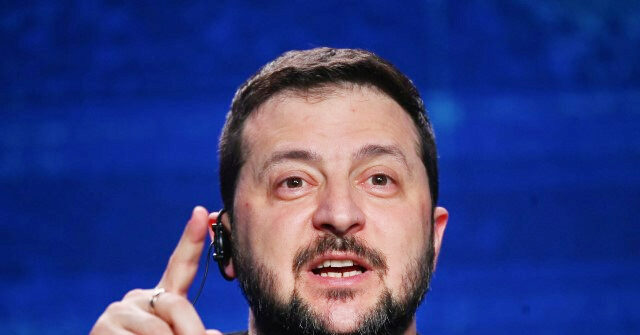“With this war, oftentimes, the deeper you look at it the less you understand. I’ve seen many leaders who were convinced they knew how to end it tomorrow, and as they waded deeper into it, they realized it’s not that simple,” he said, ripping Trump’s running mate, Vance, as “too radical.”
“Vance has come out with a more precise plan to—” the New Yorker asked as Zelensky chimed in, “to give up our territories.”
“Your words, not mine. But, yes, that’s the gist of it,” the New Yorker continued as Zelensky continued to, essentially, criticize the Trump-Vance ticket:
His message seems to be that Ukraine must make a sacrifice. This brings us back to the question of the cost and who shoulders it. The idea that the world should end this war at Ukraine’s expense is unacceptable. But I do not consider this concept of his a plan, in any formal sense. This would be an awful idea, if a person were actually going to carry it out, to make Ukraine shoulder the costs of stopping the war by giving up its territories. But there’s certainly no way this could ever happen. This kind of scenario would have no basis in international norms, in U.N. statute, in justice. And it wouldn’t necessarily end the war, either. It’s just sloganeering.
It would be one thing if these were just interviews, but according to reports, Zelensky, who has been busying himself criticizing the Republican ticket for president, flew into the United States, touring an ammunition factory in the key swing state of Pennsylvania on Sunday. Further, it seems he arrived to the facility on an U.S. Air Force C-17.
More at the site.
Yes, it’s “breitbart!” Oh no! But I did not find a similar story on BBC/CNN when I took a glance there and was not intending to hunt down alternatives with the same quotes.
I consider Breitbart being very relevant by pointing out these criticisms of the Trump ticket and making an article around it.



There are significant differences between the American & European center left. However, when you zoom out far enough, they are similar enough.
So the answer can be either “yes, they are similar,” or “no, there are significant divergences between the two.”
Not to mention that both of them have very different journalistic reputations. So, even if they are similar enough in biases, one is far more high brow than the other and consistently produces more reliable and in-depth reporting (BBC).